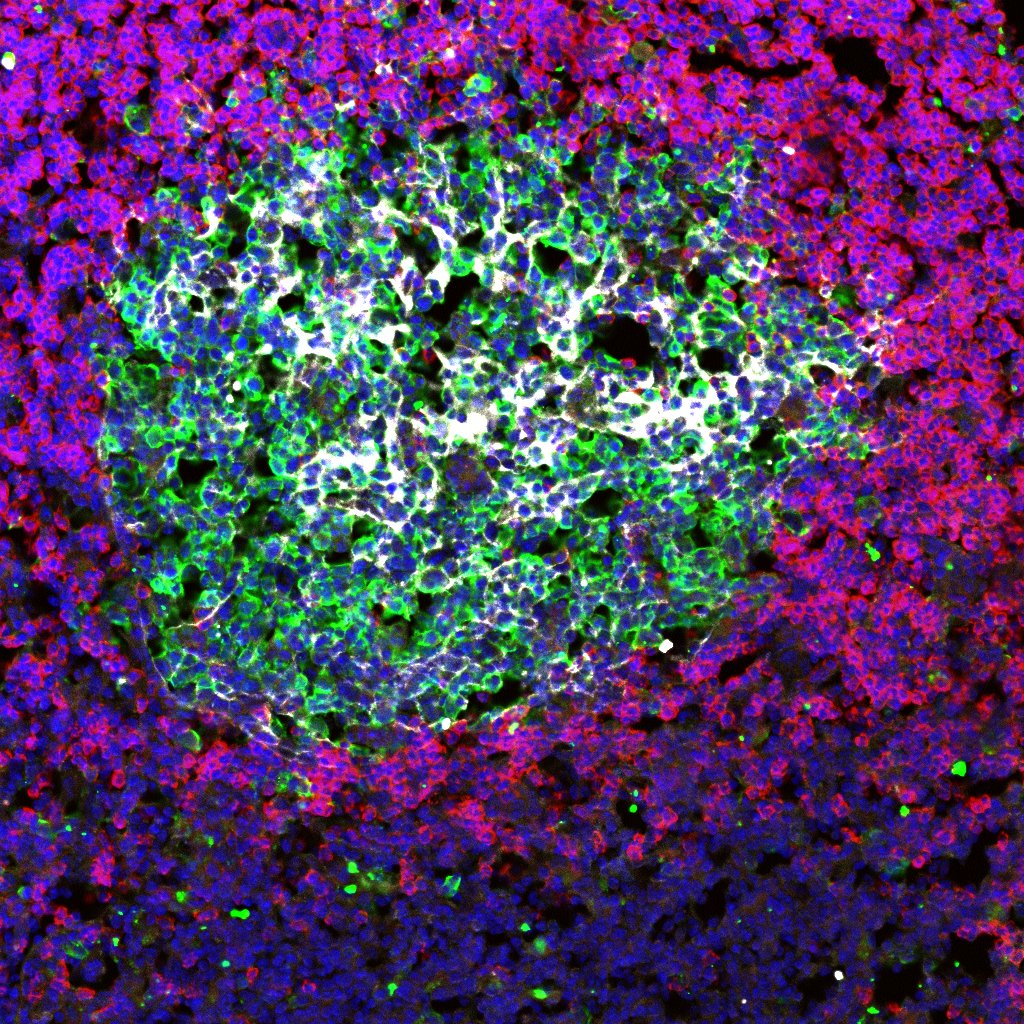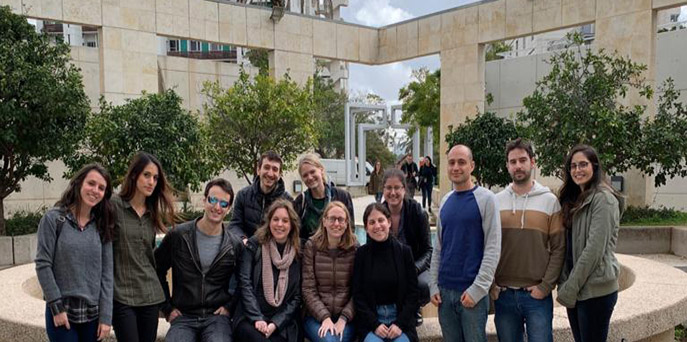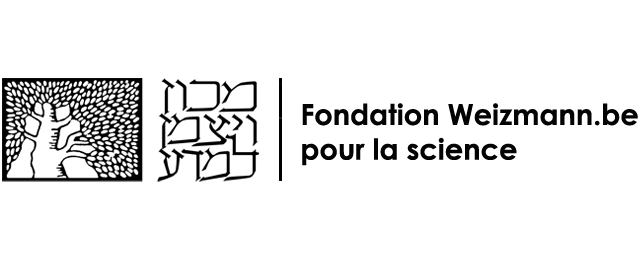Making copies of existing antibodies could be fast track to treatment

A niche within a lymph node in which antibody-forming cells are generated
Recovered COVID-19 patients continue to produce coronavirus-neutralizing antibodies, keeping them as a long-lasting “immunological memory.” Dr. Ziv Shulman’s lab in the Weizmann Institute of Science’s Immunology Department recruits recovered patients, copies the information stored in their immune cells and reproduces the neutralizing antibodies against the virus under laboratory conditions. Such antibodies might eventually serve as coronavirus drugs for treating severe cases. This so-called “passive vaccine” could be injected into patients; or it might be developed into a form of preventive vaccine for at-risk populations, including the medical teams that come into direct contact with patients, or the elderly, who often do not respond well to normal active vaccines.
The antibodies –proteins that recognize the virus and attack it – are made in specialized immune cells; so the researchers first isolated these cells from recovered COVID-19 patients and then sequenced the genetic instructions responsible for antibody production. Then the “software” needed to make the antibodies is inserted into cells in the lab that can churn the antibodies out in large quantities. The antibodies produced in this way are then are tested in different laboratory systems to assess their ability to prevent viral invasion and protect against coronavirus.
They have already demonstrated their ability to neutralize the virus inside patients’ bodies
Such “copy-paste” antibodies have a clear advantage over the engineered ones developed in other labs, as they have already demonstrated their ability to neutralize the virus inside patients’ bodies. These antibodies are also considered safe because they have already been selected by a patient’s immune system, thus they are not likely to incur such damaging side effects as binding and potentially damaging cells in the body, rather than viruses.
In addition to antibody production, the knowledge accumulated in Dr. Shulman’s lab about the nature of the coronavirus-neutralizing antibody and its mode of action may also assist in testing new vaccines that will induce the body to produce its own neutralizing antibodies.

Dr. Ziv Shulman’s lab group. Shulman is third from right
Other research in the lab is geared at decoding the immune system’s unique activity in mucosal tissues – an important step toward expanding the use of vaccines administered orally and through the respiratory system. These vaccines may grant improved protection against disease-causing agents such as the coronavirus, which penetrate the body through mucosal tissues in the nose and mouth. Because such vaccines are given in spray form, they are easier to use and they could be made more widely-availble, thus hopefully increasing vaccination rates.
Dr. Ziv Shulman’s research is supported by the Morris Kahn Institute for Human Immunology; the Moross Integrated Cancer Center; the Sir Charles Clore Prize; the Rising Tide Foundation; the Azrieli Foundation; the Gerald O. Mann Charitable Foundation; the Garvan Weizmann Partnership Donors; and the Ben B. and Joyce E. Eisenberg Foundation.

Recent Comments